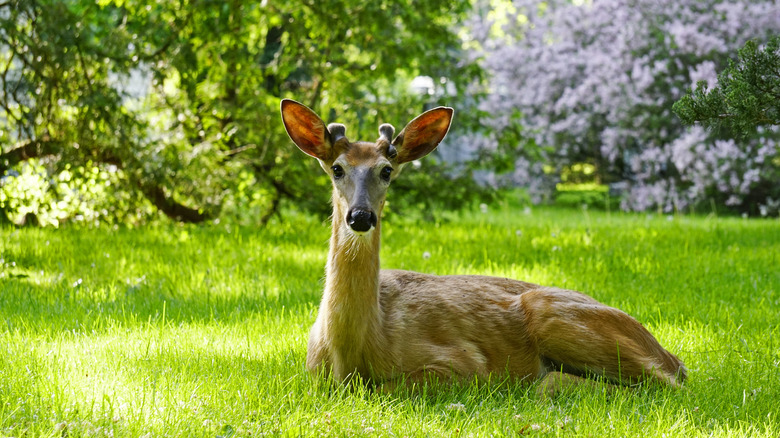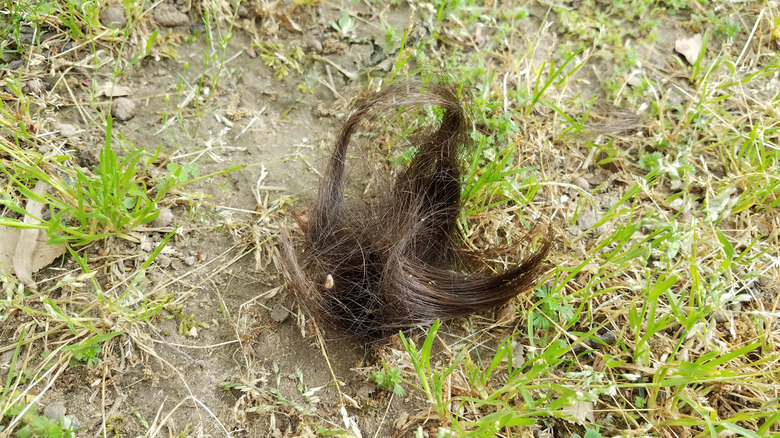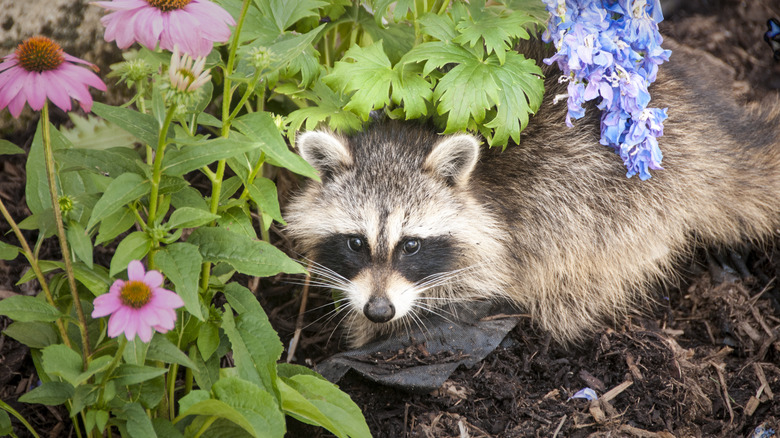Can Human Hair Keep Wildlife Out Of Your Garden? Our Entomologist Sets The Record Straight
Many homeowners turn to using human hair to keep critters out of their yards, gardens, or other outdoor areas they might be drawn to. It is believed that the smell of the hair repels certain animals and helps keep plants safe from hungry wildlife. If you've ever looked into the effectiveness of human hair as a wild animal repellent, you may have noticed that there isn't much scientific evidence that proves this method works. Mosquito Squad entomologist Emma Grace Crumbley shared her expert insight on this topic while speaking exclusively to House Digest.
When asked whether this method works, Crumbley shared, "The technical answer is maybe, but the realistic answer is no." One of the very few studies on whether human hair can keep wildlife away was conducted decades ago, according to Crumbley. "A study performed in 1978 by the New York Botanical Gardens suggested that shorn human hair bagged in a nylon bag and then attached to target plants prevented deer from feeding in certain areas," she said. However, this technique may not always work. "Given the randomness of nature and how subtle differences in variables (the environment, the hair, the researchers, the time of year) can drastically change how wildlife behave," Crumbley said. "It's difficult to say whether this method is effective."
Why using human hair to repel wildlife isn't the best idea
Not only is there very little scientific evidence to prove the effectiveness of human hair as a wildlife repellant, but this method is also not the most practical. "The amount of hair needed to fill one nylon bag, let alone enough bags to surround the home or plants of interest, is too much for the average homeowner to have readily available," Emma Crumbley said while speaking exclusively to House Digest. Additionally, the human scent on the hair that is believed to repel wildlife is only temporary.
Eventually, the hair won't have a scent at all and will lose any potential benefits. This would require you to change it out with new bags of hair frequently, according to Crumbley. There is even a chance that the hair isn't actually what kept those deer away in the previously mentioned New York Botanical Gardens study. "It could also be that deer are avoiding plants because they are spooked by the nylon bags hanging off them and the hair has nothing to do with it," Crumbley suggested. "Altogether, this seems like an ineffective and unrealistic approach, especially when there are better forms of wildlife management readily available and proven time and time again to work."
Possible origins of this myth and better pest prevention methods
Few trustworthy sources confirm human hair does in fact keep animals out of gardens, which might leave you wondering where this myth came from. According to Emma Crumbley, it isn't exactly clear, but she has a few guesses. "Many gardening websites mention burying hair in garden beds to enrich the soil and provide more structure for plant roots to form," she told House Digest exclusively. "This narrative may have twisted to include weed and pest control over time. Another possibility is that this home remedy comes from tradition and folk medicine." Crumbley also shared that it may have come from DIY enthusiasts who prefer to take care of pest control without the help of a professional, which she warned against.
Rather than using human hair to keep pests out of your garden, consider taking these measures as recommended by Crumbley. "The key to preventing pests is to reduce the conditions that allow them to thrive," she shared. "This includes removing food and water sources and limiting shelter areas." If you need to keep deer away, you may want to consider keeping less vegetation in your garden because this is primarily what attracts them. You can also keep your plants in a greenhouse or behind a fence to provide an extra layer of protection against deer.


